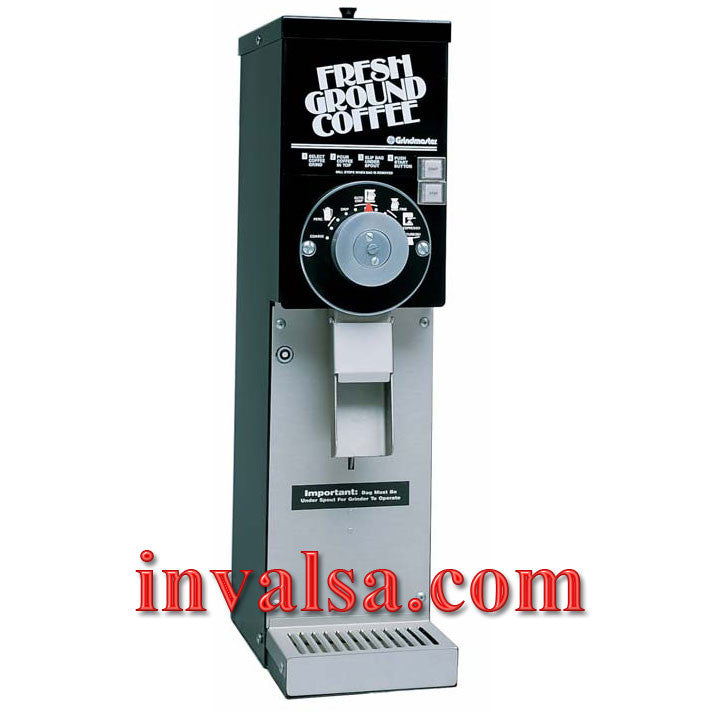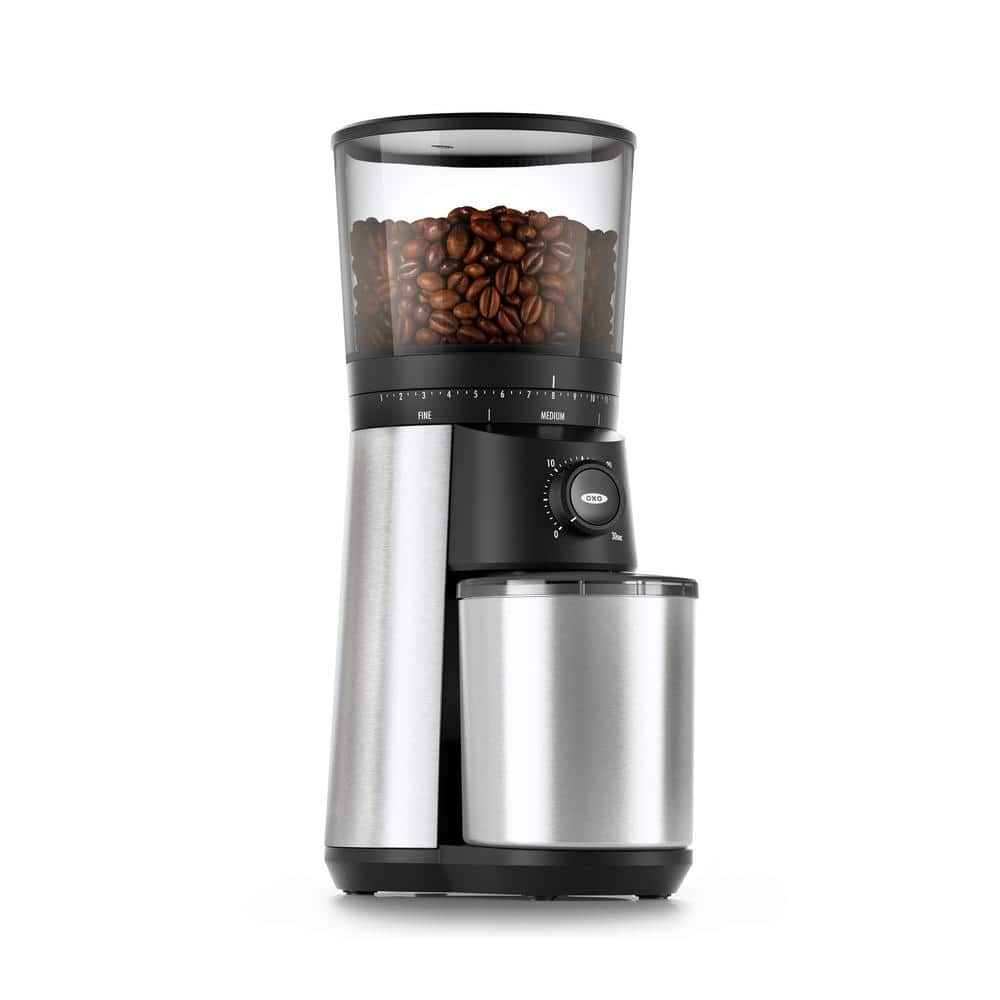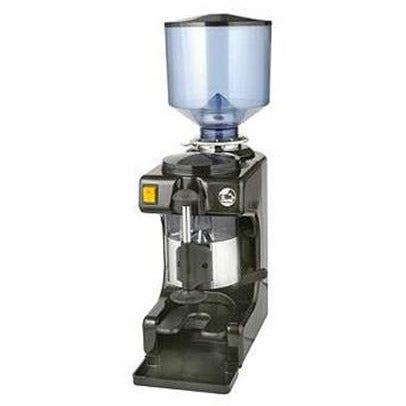Leading Functions to Try To Find in an Industrial Coffee Mill
When reviewing a commercial coffee grinder, it is essential to determine crucial functions that affect both efficiency and durability. Uniformity in work size is important for optimum removal, while adjustable grinding rate allows for a balance between performance and high quality.
Grind Size Uniformity
While different elements can affect the high quality of made coffee, grind size consistency stays vital in attaining optimal extraction. The uniformity of coffee premises straight impacts the brewing process, as irregular bit dimensions can bring about over-extraction or under-extraction. This incongruity results in unbalanced flavors, where certain notes might be overpowering while others are silenced.
Industrial coffee mills are developed to provide a high level of accuracy, usually utilizing burr grinding systems to guarantee an uniform grind size. Unlike blade mills, which can develop a mix of penalty and coarse particles, burr grinders crush the beans in between 2 surface areas, enabling better control over grind dimension. This consistency is critical across various developing approaches, whether coffee, French press, or pour-over, as each strategy calls for details grind dimensions for optimal taste extraction.
In addition, uniformity in work size adds to the overall effectiveness of the brewing procedure. An uniform work enables for even water circulation, lowering the risk of funneling and improving removal effectiveness. In summary, buying an industrial coffee mill with a focus on work size uniformity is vital for achieving premium coffee with desirable taste accounts.
Grinding Speed
Grinding speed plays a crucial duty in the overall performance of commercial coffee grinders, directly impacting both the high quality of the work and the effectiveness of the operation. Industrial Coffee Grinder. Greater grinding rates can dramatically enhance the throughput, making it feasible to process bigger quantities of coffee beans in a shorter timespan. This is specifically crucial for businesses that rely upon high-volume manufacturing, such as coffee roasteries and cafes
However, while rate is important, it is similarly essential to stabilize it with the high quality of the work. Exceedingly high grinding speeds can generate warmth, which may adversely impact the flavor profile of the coffee by causing the beans to shed necessary oils and scents. A grinder that supplies flexible speed settings can supply optimal versatility, enabling operators to customize the grinding procedure according to specific demands.
Furthermore, the grinding rate must be constant to make sure harmony in the work size, additional contributing to the general taste and developing top quality of the coffee. In summary, evaluating grinding rate is crucial for choosing a commercial coffee grinder that fulfills both performance and top quality demands.
Build Top Quality and Durability
The effectiveness of a commercial coffee mill is not solely determined by its grinding rate; develop top quality and toughness are just as vital variables that affect long-term performance and reliability. A sound grinder will withstand the roughness of everyday use, making it a sound financial investment for any type of industrial operation.

Durability additionally reaches the mill's electric motor and interior devices. Industrial coffee grinders must be geared up with heavy-duty electric motors with the ability of maintaining extended procedure without overheating. Moreover, robust burrs are important, as they straight affect the top quality of the grind and contribute to the general longevity of the maker.

Simplicity of Use and Upkeep
Constantly prioritizing convenience of use and maintenance can considerably boost the operational efficiency of a commercial coffee mill. User-friendly functions such as intuitive controls and clear labeling are important for minimizing click over here now downtime and making certain that operators can quickly adjust to the equipment. An ergonomic design, consisting of height-adjustable hoppers and accessible grinding chambers, index enables comfy operation and promotes the loading and unloading of coffee beans.
Additionally, ease of maintenance is critical for extending the life-span of the mill. Devices with detachable parts and elements made for fast cleaning can enhance upkeep tasks, decreasing the moment invested in routine maintenance - Industrial Coffee Grinder. Try to find grinders that integrate self-cleaning devices or call for very little disassembly, as these features can save useful labor hours
Additionally, clear upkeep timetables and documentation are crucial. Mills that feature thorough customer manuals describing maintenance treatments can assist drivers abide by best methods, guaranteeing consistent performance and high quality. By buying a commercial coffee grinder that emphasizes ease of use and maintenance, organizations can boost productivity, reduce functional costs, and maintain the high standards expected in coffee manufacturing.


Noise Level Decrease
When selecting a commercial coffee grinder, sound degree reduction is an important aspect that can substantially influence the workplace. High noise levels can result in employee fatigue, minimized concentration, and prospective hearing damage over time, making it important to select a grinder developed with sound-dampening features.
Seek mills that include innovative noise-reduction innovations, such as sound-insulated housings and vibration-dampening mounts. These features help to decrease functional sounds, producing a quieter atmosphere conducive to performance. Industrial Coffee Grinder. Furthermore, selecting grinders outfitted with low-noise electric motors can additionally boost sound reduction, making certain an extra pleasurable working setting
Think about the grinder's total style, as well. Versions with integrated sound-absorbing materials can significantly reduce noise exhausts during grinding cycles. Moreover, the positioning of the grinder within the workspace need to be tactical. Placing it on a steady, hefty surface can help to lower check vibrations that add to noise.
Ultimately, purchasing a coffee mill that focuses on sound reduction not only improves the convenience of employees however also lines up with a dedication to maintaining a effective and risk-free workplace. This focus to information can bring about improved worker satisfaction and retention.
Final Thought
In recap, choosing an industrial coffee grinder requires cautious consideration of several vital attributes. Grind dimension consistency is necessary for ideal extraction, while adjustable grinding speed facilitates a balance in between throughput and top quality.
Industrial coffee mills are developed to provide a high level of accuracy, often utilizing burr grinding mechanisms to guarantee an uniform grind dimension. Unlike blade grinders, which can create a mix of penalty and rugged particles, burr mills squash the beans in between two surface areas, enabling for better control over grind dimension. In summary, spending in an industrial coffee mill with an emphasis on grind dimension consistency is important for accomplishing top notch coffee with desirable taste profiles.
Grinding speed plays a critical duty in the overall efficiency of commercial coffee mills, directly influencing both the high quality of the work and the effectiveness of the operation. A grinder that offers flexible speed settings can offer optimum versatility, permitting drivers to tailor the grinding procedure according to certain needs.